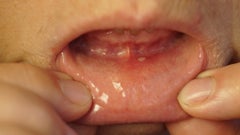
Vicodin
Vicodin is a combination medication that contains hydrocodone (an opioid) and acetaminophen (an analgesic). It's used to manage pain for people who haven't gotten enough relief from non-opioid medications. Vicodin (hydrocodone / acetaminophen) is a pill that's taken by mouth. Common side effects include nausea and sleepiness.
Please note: The brand name Vicodin is no longer available in the United States. Talk to your prescriber about alternative options to manage your pain.

What is Vicodin (hydrocodone / acetaminophen)?
What is Vicodin (hydrocodone / acetaminophen) used for?
Pain that isn't relieved by non-opioid pain medications alone
How Vicodin (hydrocodone / acetaminophen) works
Vicodin (hydrocodone / acetaminophen) is a combination of two medications that work together to treat pain.
Hydrocodone is an opioid. It attaches to certain mu-opioid receptors in your brain to lower how much pain you feel.
Acetaminophen is an analgesic. It blocks the production of certain chemicals in your brain that play a role in pain. As a result, acetaminophen helps relieve pain.
Drug Facts
More on Vicodin (hydrocodone / acetaminophen) essentials

What are the risks and warnings for Vicodin (hydrocodone / acetaminophen)?
Vicodin (hydrocodone / acetaminophen) can cause some serious health issues. This risk may be even higher for certain groups. If this worries you, talk to your doctor or pharmacist about other options.

Potential for misuse and addiction
Risk factors: Personal or family history of alcohol or substance use disorder | Personal or family history of mental health conditions
Vicodin (hydrocodone / acetaminophen) is a controlled substance because there's a risk for misuse and addiction. Take the medication exactly as prescribed. Don't change the dose or how often you take it without talking to your prescriber first.
Misusing Vicodin (hydrocodone / acetaminophen) might cause the medication to work less well. It can also raise the risk for serious and possibly life-threatening side effects, such as dangerously slow breathing, inability to stay awake, addiction, and opioid overdose. You'll be prescribed the lowest amount of Vicodin (hydrocodone / acetaminophen) that can help manage your pain for the shortest period of time possible.
Because of the risk for misuse, addiction, and overdose, Vicodin (hydrocodone / acetaminophen) is only available through a Risk Evaluation and Mitigation Strategy (REMS) program called the Opioid Analgesic REMS program. Your prescriber and pharmacy must register with the program, receive training on proper medication use, and talk with you about how to safely use Vicodin (hydrocodone / acetaminophen).

Dangerously slow breathing (respiratory depression)
Risk factors: Taking medications that can cause slow breathing | Drinking alcohol | Older age | Being frail | Medical conditions that cause breathing problems (e.g., COPD, asthma, head injury) | Taking too much Vicodin (hydrocodone / acetaminophen)
Opioids like Vicodin (hydrocodone / acetaminophen) can cause dangerously slow breathing, which can be life-threatening. This can happen to anyone and at recommended doses. But the risk is greatest when you first start treatment or when your dose goes up.
Don't drink alcohol while you're taking an opioid medication. And don't take opioids at the same time as other medications that slow your body down (e.g., benzodiazepines, other opioids, muscle relaxants). Doing so raises your risk of extremely slowed breathing.
Your prescriber might write a prescription for naloxone (Narcan), a medication that helps reverse slowed breathing from opioids. Keep it with you at all times. Use naloxone, call 911, and get medical help right away if you or your loved one notices that you have trouble breathing or have bluish-colored lips, fingers, or toes.

Opioid overdose
Risk factors: History of opioid use disorder | Previous opioid overdose | Taking high doses of Vicodin (hydrocodone / acetaminophen) | Taking more opioids than prescribed | Alcohol use
Take opioid medications like Vicodin (hydrocodone / acetaminophen) exactly as prescribed. Taking too much or taking them more often than prescribed can lead to an overdose. In addition, it can be very dangerous if someone accidentally swallows the medication. Place the opioid medication out of reach from children, pets, or visitors to prevent accidental overdose.
Symptoms of an opioid overdose include not responding to sound or touch, extremely slowed breathing, extreme sleepiness, slow heartbeat, and cold or clammy skin. Be sure you and your loved ones know how to recognize an overdose. Your prescriber will probably write a prescription for naloxone (Narcan), a medication that can treat an opioid overdose. Have naloxone with you at all times; use it and call 911 right away if an overdose happens.

Difficulty concentrating and extreme sleepiness
Risk factors: Taking high doses of Vicodin (hydrocodone / acetaminophen) | Age 65 years or older | Drinking alcohol | Taking other medications that can cause sleepiness
Opioids like Vicodin (hydrocodone / acetaminophen) can cause extreme sleepiness. They can also lower your ability to think, react, and focus. Don't drink alcohol or take other medications that can cause sleepiness or "brain fog" (e.g., benzodiazepines, muscle relaxants, sleep medications) with Vicodin (hydrocodone / acetaminophen). Doing so can worsen these side effects.
Make sure you know how opioid medications affect you before driving a car or doing activities that require your concentration. Talk to a healthcare professional (HCP) if you feel too sleepy after taking an opioid medication.

Liver damage
Risk factors: Drinking alcohol | Taking other medications containing acetaminophen | Taking too much Vicodin (hydrocodone / acetaminophen) | History of liver problems
Vicodin (hydrocodone / acetaminophen) contains acetaminophen. Taking too much acetaminophen can cause liver damage that can be life-threatening. The risk for liver damage is higher if you're taking more than one medication that contains acetaminophen, if you already have liver problems, or if you regularly drink alcohol.
Let your prescriber know about your medical history, especially if you have liver problems, before you take Vicodin (hydrocodone / acetaminophen). Also avoid drinking alcohol while you're taking this medication. Your prescriber can discuss how much acetaminophen you can take per day depending on your age and your risk for liver damage.
Call an HCP right away if you notice any symptoms of liver damage. These symptoms can include tiredness, dark urine, upset stomach, stomach pain, or yellowing of the skin or whites of the eyes.

Drug interactions
Vicodin (hydrocodone / acetaminophen) interacts with a lot of common medications. So it's important to tell your prescriber and pharmacist about the medications you're taking and planning to take with Vicodin (hydrocodone / acetaminophen). Your care team can check that your medications are safe to take together. Also talk to your care team before making any changes to your medications because sudden adjustments can also lead to harm.
Some interactions can raise the level of Vicodin (hydrocodone / acetaminophen) in your body. This can raise your risk for serious side effects, including potentially life-threatening slowed breathing. Examples of medications that interact this way with Vicodin (hydrocodone / acetaminophen) include erythromycin, ketoconazole, and ritonavir (Norvir).
Other drug interactions can lower the levels of Vicodin (hydrocodone / acetaminophen) in your body. This can cause the opioid medication to work less well for pain and possibly lead to withdrawal symptoms. These interactions include taking Vicodin (hydrocodone / acetaminophen) with rifampin (Rifadin) or carbamazepine (Tegretol).

Harm to newborn babies
Long-term use of Vicodin (hydrocodone / acetaminophen) during pregnancy can cause your unborn baby to become dependent on the medication. This is because the opioid (hydrocodone) can pass through the placenta to your unborn baby.
Once your baby is born, they can experience withdrawal symptoms, such as high-pitched crying, poor feeding behavior, abnormal sleep patterns, and seizures. These symptoms can be life-threatening if not recognized and treated in time. Let your HCP know if you've used Vicodin (hydrocodone / acetaminophen) or any other opioids during pregnancy or if you notice these symptoms in your baby.

Severe allergic reactions and skin reactions
Risk factors: Allergy to other opioids
Severe allergic reactions to Vicodin (hydrocodone / acetaminophen) are possible, including life-threatening reactions like facial swelling, shock, and anaphylaxis (e.g., closing of the throat). Though rare, acetaminophen can also cause serious skin reactions, like rash, blisters, skin reddening, or skin peeling. Get medical help right away if you notice unusual changes in your skin, swelling of the lips or tongue, or difficulty breathing.

Physical dependence and withdrawal
Risk factors: Long-term use of Vicodin (hydrocodone / acetaminophen)
Opioids like Vicodin (hydrocodone / acetaminophen) can cause physical dependence when they're taken for a long time. This means that your body starts to rely on the medication to function. You might experience withdrawal if you suddenly stop taking the medication or lower your dose too fast. Withdrawal symptoms can be bothersome and include anxiety, restlessness, irritability, sweating, and chills.
Don't lower your dose or stop taking the medication suddenly without talking to your prescriber first. Your prescriber will slowly lower your dose to prevent withdrawal symptoms. Talk to your prescriber about alternative pain medications if you have concerns about the risk for dependence and withdrawal with opioid use.

Low blood pressure
Vicodin (hydrocodone / acetaminophen) and other opioids can cause extremely low blood pressure. Your blood pressure might drop when you stand from a sitting or lying down position. This can lead to dizziness and fainting. To avoid falling, get up slowly if you've been sitting or lying down. Talk to your HCP if any dizziness or lightheadedness doesn't go away.

Low adrenal hormone levels
Risk factors: Taking Vicodin (hydrocodone / acetaminophen) for longer than 1 month
Some people who take opioid medications like Vicodin (hydrocodone / acetaminophen) have had low adrenal hormone levels. This might be more likely to happen after taking opioids for longer than 1 month. Symptoms include tiredness, dizziness, weakness, not feeling hungry, and nausea. Call an HCP if you have these symptoms. If your adrenal hormone levels are too low, you might need to stop Vicodin (hydrocodone / acetaminophen) and get treated with corticosteroids.

Seizures
Risk factors: History of seizure conditions
Opioids such as hydrocodone can raise the risk of having seizures more often in people who've had one before. Opioid medications can also raise your risk of seizures in certain situations. Get medical help right away if you have a seizure while you're taking this medication.

What are the side effects of Vicodin (hydrocodone / acetaminophen)?
Common Side Effects
- Lightheadedness
- Dizziness
- Sleepiness
- Nausea
- Vomiting
Other Side Effects
- Constipation
- Stomach pain
- Headache
- Tiredness
- "Brain fog"
- Itching
- Changes in blood pressure
Serious Side Effects
- Dangerously slow breathing: trouble breathing; bluish-colored lips, fingers, or toes
- Accidentally taking too much (overdose): not responding to sound or touch, slowed breathing, extreme sleepiness, cold or clammy skin, slow heartbeat, upper right-sided stomach pain, dark urine, yellowing of your skin or eyes
- Opioid withdrawal: anxiety, suicidal thoughts, restlessness, runny nose, yawning, sweating, chills, wide pupils, irritability
- Serious allergic reaction or skin reaction: rash, hives, blistering or peeling skin, shortness of breath, fast heartbeat, dizziness, feeling warm suddenly
Source: DailyMed
More on Vicodin (hydrocodone / acetaminophen) side effects
The following side effects have also been reported
Along with its needed effects, a medicine may cause some unwanted effects. Although not all of these side effects may occur, if they do occur they may need medical attention.
Check with your doctor immediately if any of the following side effects occur:
More common
Dizziness
lightheadedness
Incidence not known
Back, leg, or stomach pains
black, tarry stools
bleeding gums
blood in the urine or stools
blood in vomit
bluish lips or skin
chills
choking
dark urine
decrease in the frequency of urination
decrease in urine volume
difficult or trouble breathing
difficulty in passing urine (dribbling)
difficulty with swallowing
fast heartbeat
fever with or without chills
general body swelling
general feeling of tiredness or weakness
headache
hoarseness
irregular, fast or slow, or shallow breathing
light-colored stools
loss of appetite
lower back or side pain
nosebleeds
not breathing
painful or difficult urination
pale or blue lips, fingernails, or skin
pinpoint red spots on the skin
puffiness or swelling of the eyelids or around the eyes, face, lips, or tongue
severe or continuing stomach pain
sore tongue
sores, ulcers, or white spots on the lips or in the mouth
tightness in the chest
unable to speak
unusual bleeding or bruising
unusual tiredness or weakness
upper right abdominal or stomach pain
vomiting
yellow eyes and skin
Get emergency help immediately if any of the following symptoms of overdose occur:
Symptoms of overdose
Bloody or cloudy urine
change in consciousness
chest pain or discomfort
cold and clammy skin
decreased awareness or responsiveness
extreme drowsiness
general feeling of discomfort or illness
increased sweating
irregular heartbeat
lightheadedness, dizziness, or fainting
loss of consciousness
no blood pressure or pulse
no muscle tone or movement
not breathing
severe sleepiness
slow or irregular heartbeat
stopping of heart
sudden decrease in the amount of urine
unpleasant breath odor
Some side effects may occur that usually do not need medical attention. These side effects may go away during treatment as your body adjusts to the medicine. Also, your health care professional may be able to tell you about ways to prevent or reduce some of these side effects. Check with your health care professional if any of the following side effects continue or are bothersome or if you have any questions about them:
More common
Drowsiness
relaxed and calm feeling
sleepiness
Incidence not known
Belching
changes in mood
difficulty having a bowel movement
fear or nervousness
feeling of indigestion
hearing loss
impaired hearing
pain in the chest below the breastbone
unusual drowsiness, dullness, tiredness, weakness, or feeling of sluggishness
Other side effects not listed may also occur in some patients. If you notice any other effects, check with your healthcare professional.
Call your doctor for medical advice about side effects. You may report side effects to the FDA at 1-800-FDA-1088.

Pros and cons of Vicodin (hydrocodone / acetaminophen)

Pros
Takes about 30 minutes start relieving pain
Combines two pain medications within a single product

Cons
Has a risk of misuse and dependence
Not recommended to take with other medications containing acetaminophen since it can raise the risk of liver damage

Pharmacist tips for Vicodin (hydrocodone / acetaminophen)

Constipation is a common side effect when you take opioid medications like Vicodin (hydrocodone / acetaminophen). Stay hydrated and add more fiber to your diet. Speak with your care team if these tips aren't enough to help with constipation. Your prescriber can recommend medications or a change in your pain treatment.
Opioid medications can make you sleepy or dizzy. They can also lower how clearly you can think or how fast you can react. Don't drive or do activities that need your attention until you know how opioid medications like Vicodin (hydrocodone / acetaminophen) affect you.
Don't drink alcohol while you're taking opioids like Vicodin (hydrocodone / acetaminophen). Alcohol can worsen sleepiness and dizziness and make it hard for you to think clearly. Taking Vicodin (hydrocodone / acetaminophen) with alcohol can also harm your liver.
Take opioids like Vicodin (hydrocodone / acetaminophen) exactly as prescribed. Don't change your dose or stop taking the medication without talking to your prescriber. Your prescriber might lower your dose slowly over time before you can completely stop the medication. This helps prevent bothersome withdrawal symptoms like muscle aches, chills, and trouble sleeping.
Your prescriber will discuss about having naloxone (Narcan) with you at all times. Naloxone is a medication that can help reverse the effects of opioid medications in situations like very slowed breathing or an accidental overdose. Teach your loved ones about how to give naloxone to you if you can't do it yourself. Call 911 right away if you need to use naloxone because this is a medical emergency.
Place opioid medications like Vicodin (hydrocodone / acetaminophen) out of reach from children, pets, and visitors. Find a drug take-back location to safely get rid of the medication if you don't need it anymore. This helps lessen the risk for accidental overdose and medication misuse.

Frequently asked questions about Vicodin (hydrocodone / acetaminophen)

How to save using GoodRx




Vicodin (hydrocodone / acetaminophen) dosage forms
Typical dosing for Vicodin (hydrocodone / acetaminophen)
Your prescriber will work with you to find the right dose of Vicodin (hydrocodone / acetaminophen) for your individual needs. It's recommended to use the lowest dose possible for the shortest duration of time to manage your pain.
Vicodin (hydrocodone / acetaminophen) is typically taken by mouth every 4 to 6 hours as needed for pain.

Interactions between Vicodin (hydrocodone / acetaminophen) and other drugs
Using this medicine with any of the following medicines is not recommended. Your doctor may decide not to treat you with this medication or change some of the other medicines you take.
- Nalmefene
- Naltrexone
- Safinamide
Using this medicine with any of the following medicines is usually not recommended, but may be required in some cases. If both medicines are prescribed together, your doctor may change the dose or how often you use one or both of the medicines.
- Abametapir
- Acepromazine
- Alfentanil
- Almotriptan
- Alprazolam
- Amifampridine
- Amineptine
- Amiodarone
- Amitriptyline
- Amitriptylinoxide
- Amobarbital
- Amoxapine
- Amphetamine
- Amprenavir
- Anileridine
- Aprepitant
- Aripiprazole
- Armodafinil
- Asenapine
- Atazanavir
- Baclofen
- Benperidol
- Benzphetamine
- Boceprevir
- Bosentan
- Bromazepam
- Bromopride
- Brompheniramine
- Buprenorphine
- Buspirone
- Butabarbital
- Butorphanol
- Calcium Oxybate
- Cannabidiol
- Carbamazepine
- Carbinoxamine
- Carisoprodol
- Carphenazine
- Ceritinib
- Cetirizine
- Chloral Hydrate
- Chlordiazepoxide
- Chlorpheniramine
- Chlorpromazine
- Chlorzoxazone
- Ciprofloxacin
- Citalopram
- Clarithromycin
- Clobazam
- Clomipramine
- Clonazepam
- Clopidogrel
- Clorazepate
- Clozapine
- Cobicistat
- Cocaine
- Codeine
- Conivaptan
- Crizotinib
- Cyclobenzaprine
- Cyclosporine
- Darunavir
- Dasabuvir
- Delavirdine
- Desipramine
- Desmopressin
- Desvenlafaxine
- Dexamethasone
- Dexmedetomidine
- Dextroamphetamine
- Dextromethorphan
- Dezocine
- Diazepam
- Dibenzepin
- Dichloralphenazone
- Difenoxin
- Dihydrocodeine
- Diltiazem
- Diphenhydramine
- Diphenoxylate
- Dolasetron
- Donepezil
- Doxepin
- Doxylamine
- Dronedarone
- Droperidol
- Duloxetine
- Efavirenz
- Eletriptan
- Enflurane
- Enzalutamide
- Erythromycin
- Escitalopram
- Esketamine
- Eslicarbazepine Acetate
- Estazolam
- Eszopiclone
- Ethchlorvynol
- Ethopropazine
- Ethylmorphine
- Etravirine
- Fenfluramine
- Fentanyl
- Flibanserin
- Fluconazole
- Fluoxetine
- Fluphenazine
- Flurazepam
- Fluspirilene
- Fluvoxamine
- Fosamprenavir
- Fosaprepitant
- Fosnetupitant
- Fosphenytoin
- Fospropofol
- Frovatriptan
- Furazolidone
- Gabapentin
- Gabapentin Enacarbil
- Granisetron
- Halazepam
- Haloperidol
- Halothane
- Hexobarbital
- Hydromorphone
- Hydroxytryptophan
- Hydroxyzine
- Idelalisib
- Imatinib
- Imipramine
- Indinavir
- Iproniazid
- Isocarboxazid
- Isoflurane
- Isoniazid
- Itraconazole
- Ivacaftor
- Ketamine
- Ketazolam
- Ketobemidone
- Ketoconazole
- Lasmiditan
- Lemborexant
- Levocetirizine
- Levomilnacipran
- Levorphanol
- Linezolid
- Lisdexamfetamine
- Lithium
- Lofepramine
- Lofexidine
- Lomitapide
- Lopinavir
- Lorazepam
- Lorcaserin
- Loxapine
- Lumacaftor
- Magnesium Oxybate
- Meclizine
- Melitracen
- Melperone
- Meperidine
- Mephobarbital
- Meprobamate
- Meptazinol
- Mesoridazine
- Metaxalone
- Methadone
- Methamphetamine
- Methdilazine
- Methocarbamol
- Methohexital
- Methotrimeprazine
- Methylene Blue
- Metoclopramide
- Mibefradil
- Midazolam
- Mifepristone
- Milnacipran
- Mirtazapine
- Mitotane
- Moclobemide
- Modafinil
- Molindone
- Moricizine
- Morphine
- Morphine Sulfate Liposome
- Nafcillin
- Nalbuphine
- Naratriptan
- Nefazodone
- Nelfinavir
- Netupitant
- Nevirapine
- Nialamide
- Nicomorphine
- Nilotinib
- Nitrazepam
- Nitrous Oxide
- Nortriptyline
- Olanzapine
- Ombitasvir
- Ondansetron
- Opipramol
- Opium
- Opium Alkaloids
- Orphenadrine
- Oxazepam
- Oxcarbazepine
- Oxycodone
- Oxymorphone
- Ozanimod
- Palbociclib
- Palonosetron
- Papaveretum
- Paregoric
- Paritaprevir
- Paroxetine
- Pentazocine
- Pentobarbital
- Perampanel
- Perazine
- Periciazine
- Perphenazine
- Phenelzine
- Phenobarbital
- Phenytoin
- Piperacetazine
- Pipotiazine
- Piritramide
- Pixantrone
- Pneumococcal 13-Valent Vaccine, Diphtheria Conjugate
- Posaconazole
- Potassium Oxybate
- Prazepam
- Prednisone
- Pregabalin
- Primidone
- Procarbazine
- Prochlorperazine
- Promazine
- Promethazine
- Propofol
- Protriptyline
- Quazepam
- Quetiapine
- Ramelteon
- Ranitidine
- Ranolazine
- Rasagiline
- Remifentanil
- Remimazolam
- Remoxipride
- Rifabutin
- Rifampin
- Rifapentine
- Ritonavir
- Rizatriptan
- Saquinavir
- Scopolamine
- Secobarbital
- Selegiline
- Sertindole
- Sertraline
- Sibutramine
- Sodium Oxybate
- St John's Wort
- Sufentanil
- Sulpiride
- Sumatriptan
- Suvorexant
- Tapentadol
- Telaprevir
- Telithromycin
- Temazepam
- Thiethylperazine
- Thiopental
- Thiopropazate
- Thioridazine
- Tianeptine
- Tilidine
- Tizanidine
- Tolonium Chloride
- Topiramate
- Tramadol
- Tranylcypromine
- Trazodone
- Triazolam
- Trifluoperazine
- Trifluperidol
- Triflupromazine
- Trimeprazine
- Trimipramine
- Tryptophan
- Venlafaxine
- Verapamil
- Vilazodone
- Voriconazole
- Vortioxetine
- Zaleplon
- Ziprasidone
- Zolmitriptan
- Zolpidem
- Zopiclone
- Zotepine
Using this medicine with any of the following medicines may cause an increased risk of certain side effects, but using both drugs may be the best treatment for you. If both medicines are prescribed together, your doctor may change the dose or how often you use one or both of the medicines.
- Acenocoumarol
- Carbamazepine
- Fosphenytoin
- Lixisenatide
- Phenytoin
- Warfarin
- Zidovudine

How much does Vicodin (hydrocodone / acetaminophen) cost?

Vicodin (hydrocodone / acetaminophen) contraindications
Severely slowed breathing (respiratory depression)
Severe asthma
Medical conditions that cause blockage of the stomach passageway
Allergy to hydrocodone or acetaminophen

What are alternatives to Vicodin (hydrocodone / acetaminophen)?
Pain that isn't relieved by non-opioid pain medications alone
Toothache
Backache
Muscle aches
Minor arthritis pain
Ankylosing spondylitis (AS) (arthritis of the spine)
Polyarticular juvenile idiopathic arthritis (arthritis in children)
Tendonitis and bursitis
Pain

What is the latest news about Vicodin (hydrocodone / acetaminophen)?

Vicodin (hydrocodone / acetaminophen) images
Get savings updates for Vicodin (hydrocodone / acetaminophen)
Receive price alerts, news, and other messages from GoodRx about Vicodin (hydrocodone / acetaminophen) and other healthcare topics and relevant savings offers.By signing up, I agree to GoodRx's Terms and Privacy Policy, and to receive marketing messages from GoodRx.
References
Best studies we foundAbbVie Inc. (2018). Vicodin HP- hydrocodone bitartrate and acetaminophen tablet; Vicodin ES- hydrocodone bitartrate and acetaminophen tablet; Vicodin- hydrocodone bitartrate and acetaminophen tablet [package insert]. DailyMed.
American College of Obstetricians and Gynecologists. (2021). Opioid use and opioid use disorder in pregnancy.
Centers for Disease Control and Prevention. (2024). About opioid use during pregnancy.
Chang, A. K., et al. (2015). Comparative analgesic efficacy of oxycodone/acetaminophen versus hydrocodone/acetaminophen for short-term pain management in adults following ED discharge. Academic Emergency Medicine.
Committee on Obstetric Practice Breastfeeding Expert Work Group. (2021). Breastfeeding challenges: ACOG Committee Opinion, number 820. Obstetrics & Gynecology.
Drugs and Lactation Database (LactMed®). (2023). Hydrocodone. National Institute of Child Health and Human Development.
Gerriets, V., et al. (2024). Acetaminophen. StatPearls.
Larson, J. J., et al. (2019). Cognitive and behavioral impact on children exposed to opioids during pregnancy. Pediatrics.
Marco, C. A., et al. (2005). Comparison of oxycodone and hydrocodone for the treatment of acute pain associated with fractures: A double-blind, randomized, controlled trial. Academic Emergency Medicine.
McCarberg, B. H. (2007). The treatment of breakthrough pain. Pain Medicine.
McNicol, E., et al. (2003). Management of opioid side effects in cancer-related and chronic noncancer pain: A systematic review. The Journal of Pain.
MedlinePlus. (2023). Prescription drug misuse.
National Institute of Diabetes and Digestive and Kidney Diseases. (2018). Adrenal insufficiency & Addison’s disease.
National Institute of Diabetes and Digestive and Kidney Diseases. (2018). Symptoms and causes of adrenal insufficiency & Addison’s disease.
U.S. Food and Drug Administration. (2016). FDA drug safety communication: FDA warns of rare but serious skin reactions with the pain reliever/fever reducer acetaminophen.
U.S. Food and Drug Administration. (2022). Drug disposal: Drug take back locations.
Weller, A. E., et al. (2021). Neonatal opioid withdrawal syndrome (NOWS): A transgenerational echo of the opioid crisis. Cold Spring Harbor Perspectives in Medicine.
Compare other Pain drugs
Browse medications
View AllResearch prescriptions and over-the-counter medications from A to Z, compare drug prices, and start saving.













